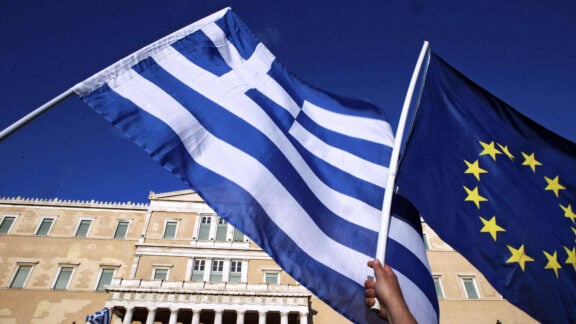In a week that saw Prime Minister Kevin Rudd commit to “terminate” the carbon tax and move to an emissions trading scheme (ETS) a year earlier than planned, followed by Opposition leader Tony Abbott blasting the plan as a “one-year fiddle” – the pricing – or not, of carbon, looks set to be the coming election’s most inflated political football.
It’s imperative we have a price on carbon if we want to change behaviours and outcomes (Nick Dallas)
Kevin Rudd’s planned deconstruction of the carbon tax, beyond his powers in this parliament because of its need to be supported by the Greens (who are against the terms of the ETS he’s proposing), has been received by many as a clever PR stunt – designed largely to jettison an unpopular tax as electioneering begins.
The Coalition’s point – that the Rudd designed ETS will do nothing to prevent the carbon price rising over time, regardless of the name of the scheme, thereby increasing costs to Australian consumers and industry without cutting emissions significantly, is an argument that a sceptical electorate may well empathise with.
“Mr Rudd can change the name but, whether it is fixed or floating, it is still a carbon tax,” Tony Abbott said this week, appealing to the public’s uncertainty of how a demand-driven ETS would work.
“Only the Coalition will do the right thing by families to reduce their cost of living by scrapping the carbon tax, lock, stock and barrel,” he added, firmly suggesting any price on carbon was to be challenged.
Kevin Rudd was first elected PM in 2007 on a promise to introduce such a price. After declaring it the most important issue of this generation, he did a U-turn on the policy in 2010 – a move that led to his removal later that year.
Meanwhile, the Coalition’s Direct Action plan to combat climate change has attracted criticism, not just outside the Coalition but within its own ranks, with some Liberal MPs suggesting publicly it should review or even abandon its policy.
Coalition frontbencher Malcolm Turnbull’s reluctance to support the plan is well-known, having referred to it as “a con” after he lost the leadership to Tony Abbott in 2009. Mr Turnbull supports an ETS.
The Direct Action plan shies away from putting a price on carbon and seeks to cut emissions by 5 per cent cut from 2000 levels by 2020.
Costed at $3.2 billion over four years, the plan’s architects say it can achieve its targets by reducing pollution and offering financial incentives to companies that cut carbon emissions. It’s critics are dubious of its claims.
Nick Dallas, Melbourne author and climate change analyst, and a supporter of an ETS mechanism, says to make a judgment on the efficacy of climate change action, it’s first vital to understand the difference between a carbon tax and an ETS .
“Both represent a price on carbon emissions but the difference is that the carbon price from an ETS scheme is market driven, whereas a carbon tax is regulated and there’s greater certainty with regards to the revenue it can generate.”
Dallas, a vocal critic of the Coalition’s plan, maintains that Tony Abbott’s reluctance to appreciate the ETS process (even though it was originally floated by John Howard) is “because the climate change debate within the Coalition is driven by ideologues who don’t believe climate change is occurring”.
“These are influencers within the party driving the agenda and hijacking the debate, even though the global scientific consensus is that climate change is occurring and action is required urgently,” he says.
While agreeing that Kevin Rudd’s intention to fast-track the evolution of Labor’s carbon tax to an ETS has been “electorally-driven”, Dallas maintains the benefits of ETS as a system for putting a price on carbon emissions far outweigh the disadvantages.
“It’s better for a variety of reasons. Firstly, you have many countries linked to it, and this will probably form the basis of a future global scheme, ” he says.
“Businesses also prefer it because the price is market-driven. It offers more of a level playing field in a competitive sense and it provides incentives to make changes to internal processes.”
Dallas says the scale of the challenge facing the world should stop any responsible Australian politician procrastinating over the design of carbon pricing.
“It’s imperative we have a price on carbon if we want to change behaviours and outcomes.
“We don’t want to get to the stage where we’re seeing super-extreme climatic events before we realise that urgent and drastic action is required.”









